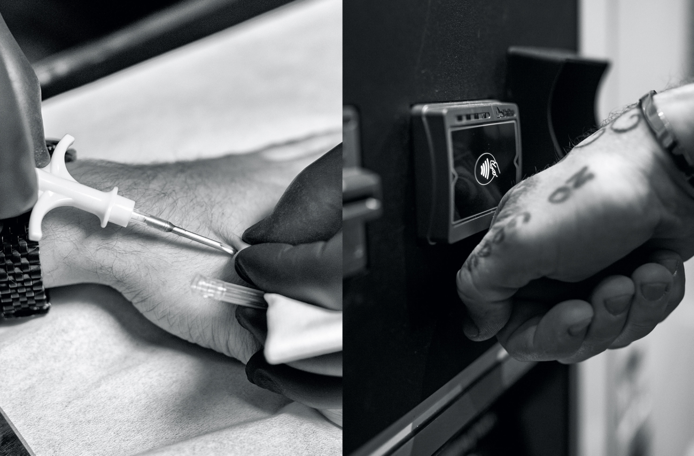Two years ago, when the social credit
system was introduced in China, it was obvious that the idea was too good not
to spread outside the frontiers of the Middle Kingdom and so it has even faster
than anticipated.
As expected the idea to be more presentable
has been stripped of its most nefarious aspects of “social control” but the
basic concept is the same: To introduce a score which is easily exchangeable
between companies and gives a reliable mix of social and economic information
on people for marketing, commercial and financial purposes.
Outside the US where Credit Bureaus like Equifax
and Experian have build credit scores covering the credit worthiness of most of
the population, other countries have limited themselves in this field mostly
due to privacy concerns, especially in Europe and Japan.
But the need to segment efficiently and
target more readily the right people has not only been growing but becoming more and more
indispensable.
Who needs segmentation?
As we explained already in previous posts,
segmenting your own client database is complex and expensive and segmenting non
clients is close to impossible for most companies due to the lack of reliable
and relevant information. And still, it needs to be done if only because not
doing it exposes you to the risk of not offering the right incentive to the
right people when your better informed competitors skim out the best segments
of the population with tailored services. Whatever we may thing of targeting,
it is a arm race which no company can ignore and expect to stay in
business.
But to segment people, you need data, lot’s
of data which is obviously not available to most companies which have access to
little more than what’s on their client list: Names, addresses and a list of
transaction.
Enters the Internet platform companies with
their huge database and free services. These database being gigantic, the
probability to strike gold with the right tools is clear. On the other hand their
“free” but actually extremely expensive services raise the incentive to do “something”
with data. Facebook and Google, the two giants in the sector have focused
themselves on cornering the on-line advertising ecosystem, offering targeted advertising
to companies. The system works and is efficient, but you mostly do not know who
you are targeting beyond the specifications of the segments you are creating in
a black box system which is proactive but blind. This is the accepted practice
of the Internet which mostly protects the privacy of everyone while offering
better segmentation that what advertising agency could ever offer. The online advertising
market being huge and growing very fast, both Google and Facebook have little incentive
to go much beyond what they currently do with the risk of increasing still
further the negative attention they are attracting.
But other, smaller players, such as Line,
face a very different and less attractive ballgame. Line is a free service
offering unlimited communication (similar to WhatsApp) with a few commercial
applications but very little space available for advertising on its mostly
mobile platform. So the question to mine efficiently the huge pool of
communication they had access to was from the beginning hanging in the air and
waiting to be answered. Creating a credit score is the smart answer.
It is interesting in this respect to note
that people accept that on-line platforms such as Google, Facebook or Line can analyze
as much as they want their written communication but that voice companies such
as ATT or NTT are not allowed to do the same with voice contents. A difference
of content or perception?
What is the Line score?
First of all, let’s note that Line Score is
a product of Line Credit Corporation which itself is a joint venture between
Line, Mizuho Bank and Orico (Oriental Corporation). This underlines the
important financial aspect of this new service.
Secondly, the service is of course
voluntary and will be based on building relations with thousands of partner
companies which will offer access and incentives to people, powering the system
and helping build a critical mass of early adopters.
Unlike its Chinese counterpart, this
Japanese system is not a “social score” and certainly has no intentions of
becoming a political score. But here the problem is that once you have created
a basic score and it becomes freely available which is the goal, it becomes
extremely easy to tweak it to create a derivative which offers whatever
characteristics you want… And this clearly is the risk of such a system. Once
it exists, it is extremely easy to create whatever version you want.
Likewise, the system has not been gamified
as in China to make it more acceptable. . yet. This of course is only a matter of
time. If adoption is too slow, it is obvious that someone, somewhere will add
some addictive “game-like” aspects to it. Points, gifts, levels and other ideas
are all over the Internet to be chosen from, to make the system more addictive
and ubiquitous.
Finally, let’s not forget that this score
is before anything a financial score, so its primary goal will be to target
Consumer finance, a large and growing market in Japan.
So to resume: A great idea, a powerful market
need, available data and technology means that we all will get used to seeing
scores on our mobile phones sooner than later. It is likely, at least at the
beginning that these scores will proliferate. Then the market will settle and
select the best ones. Meanwhile, China will be 2 or 3 years ahead, fine tuning
and refining the technology (without controversy? I am not so sure but let’s
see.)
Eventually, I believe these scores will
soon become the core of a multitude of such indexes and synthetic numbers used
in an infinite variety of functions to allow, disallow, give access, privileges
in an infinity of fields; transportation, information, finance, leisure and
more. The transformation from data to information and into insight will be
completed and another level of complexity will arise.
Such technology is both to be feared and
welcome. It all depends what we do with it. It can both be a tool for increased
efficiency or enhanced coercion. In the end it is likely to be both as so many
other technologies which came before. What we measure and how we implement it will
be important to put it on the right tracks. A system by default as so often
happens with technology is not likely to give us the best possible outcome.
Unlike what Adam Smith believed, the invisible hand of the market has often
proved to favor vested interest and its actions to be neither light nor
optimum.
For reference, I include below the
information provided by Line to present the product in its press report.
[Japan] LINE Launches Proprietary Scoring
Service LINE Score to “Enrich Daily Life”
2019.06.27 ALL
● Users can
enjoy car and fashion-related benefits, with travel, food, and home décor
benefits to follow
● Users consent
will always be required before calculating scores or sharing data with partner
companies
TOKYO – June 27,
2019 – LINE Corporation (“LINE”) announces that its proprietary scoring
service LINE Score will be available today through LINE Credit Corporation
(“LINE Credit”).*1 LINE Credit itself is a group company of LINE Financial
Corporation (“LINE Financial”), provider of LINE’s financial services.
*1 LINE Credit
is a joint venture established between LINE Financial, Mizuho Bank Ltd.
(“Mizuho”) and Orient Corporation (“Orico”).
Utilizing a
proprietary AI-driven scoring model, LINE Score is available to the LINE app’s
more than 80 million MAU in Japan, and is easily accessed via the in-app LINE
Wallet tab. The service will provide promotions, deals, and a range of other
benefits customized to each individual user’s score.
Specifically,
calculating the overall score involves utilizing data from a user’s activity
trends on the LINE platform (such as usage of the LINE app and other LINE
Family services) along with additional information from the preliminary
questionnaire, and a combination of AI capabilities and Mizuho and Orico’s
sophisticated know-how. With the launch of LINE Score, LINE has been able to
establish a proprietary scoring platform suited to online financial services.
Additionally, a
user’s score will only be calculated after they have given their consent.
Background to
LINE Score and plans for the future
With the
widespread use of the internet and smartphones, various activities in people’s
day-to-day lives are rapidly shifting to the online world. The age of
full-scale big data has arrived. Countless businesses are analyzing and
utilizing online data to further optimize their services to suit individual
interests and preferences, evolving them into better, more useful offerings.
Novel and innovative mechanisms and systems also continue to emerge.
In addition to
the LINE messaging service, LINE offers its over 80 million MAU in Japan a wide
range of content, services, and businesses in areas such as AI, O2O, and
Fintech. Providing these services has enabled LINE to accumulate a vast amount
of big data on a daily basis, leading to its growth as one of the largest big
data companies in Japan.
With LINE Score,
the proprietary scoring method works by combining big data collected from the
LINE platform, and a dozen items of profile information provided by the user in
the preliminary questionnaire. Based on this score, users can enjoy more
personalized and convenient benefits and experiences, as well as obtain more
value from LINE services and its various partners to “enrich their daily
life.”
LINE’s huge
userbase has made it possible for the company to deliver a more accurately
calculated, more tailor-made experience. To offer benefits to even more users
in the future, LINE intends to increase the number of partnerships with other
companies and services, and expand the value and value-added experiences it
offers.
In future, LINE
is contemplating applying scoring data to other LINE services to provide an
even more convenient and useful system for users. Further, the company is also
considering providing scoring data to third parties through API for agreed upon
uses, while always respecting user consent and strictly safeguarding personal
information.
Going forward,
LINE will continue to develop LINE Score into an exceptionally convenient
service—striving to securely use and manage data, and provide experiences that
will make users’ day-to-day life just a little richer.
Features of LINE
Score
1. AI-driven
proprietary scoring model
LINE’s
proprietary scoring model utilizes (i) data on a user’s activity trends on LINE
services and (ii) the additional information provided in the preliminary
questionnaire to produce a score between 100 and 1,000 points. Users can check
their own scores at any time.
2. User consent
is always required
Users will be
asked to provide their consent before using the LINE Score service. Scoring
data and information provided by the user when first using the service will be
utilized to calculate scores in future, and for the purposes outlined in LINE
Credit’s privacy policy. This data will never be shared with LINE’s partner
companies (providers of benefits) without user consent. LINE places protection
of user privacy as its highest management priority, and follows a much broader
interpretation of personal information than the legal definition. As the
company is also especially stringent when it comes to protecting “privacy of
communications” (such as messages), the content of communications and messages
are not included among data used to calculate scores.
3. Benefits
based on scores
Special deals,
promotions, and a host of other benefits are available to users, with each set
of benefits tailored to the individual user’s score. For example, various campaigns
held during different periods will offer special deals for sharing and
subscription services, including space sharing (such as parking spots and
venues), items (such as clothes and accessories), transport (such as cars and
bicycles), and skill sharing (such as housekeeping services).
This summer in
Japan, LINE also plans to add to lineup of benefits with a new unsecured
personal loan service, LINE Pocket Money. Under the new service, annual
interest rates and credit limits most suitable for an individual user will be
determined by their score from the LINE Score service. In the lead-up to the
launch, LINE intends to develop a service model that is a go-to option for
unplanned expenses, and make it possible to complete the entire process—application,
borrowing, and lastly, repayments—on the LINE app. More details will be
announced when LINE Pocket Money is released.
About LINE
Score
LINE Score is a
service that allows users to enjoy special deals, receive gifts, and other
benefits that are tailored to their scores. Getting started with the service is
straightforward—users simply open the LINE app, go to the LINE Wallet tab, tap
on LINE Score and agree to the Terms and Conditions. Scores will increase if
the user answers around a dozen preliminary questions, and will also regularly
update as more data is acquired on the user’s activity trends within the LINE
services.
Calculating
scores with the service
Users must
consent to the LINE Score Terms and Conditions before they begin using the
service. Data will not be calculated by default, or be utilized under a user’s
current LINE account settings. Additionally, each time a user makes use of a
benefit offered by a partner company, they will need to consent to having their
data shared with the company in question.
Partnering with
a diverse range of companies to offer user benefits
To celebrate the
launch of LINE Score, users who use the service and obtain a score will be able
to participate in the following campaigns.
• Campaign
launches today: Invitation to the August 23 premiere screening in Japan of the
upcoming anime film, Ni no Kuni distributed by Warner Bros (all users are
eligible regardless of their score).
• Campaign
launches in July: Rent Italian luxury cars for free
• Campaign launches
in July: Rent designer French bags for free
• Campaign
launches in August: Rent Swiss luxury wristwatches for free
More details on
the campaigns and promotional periods can be found in the following blog
post.
Starting today,
the following companies will offer an array of special deals, promotions, and
other benefits to users via LINE Score.
From today to
July
• DeNA SOMPO
Mobility Co. Ltd.: JPY 5,000 coupon for new users (from today)
• Laxus
Technologies Inc.: JPY 3,000 worth of Laxus Points (from today)
• LINE Pay
Corporation: Level up in My Level incentive program for users with a score over
a certain number (from today)
• Airbnb: JPY
2,000 coupon (from July)
Coming soon
• Oisix Ra
Daichi Inc.: 60% discount for Oisix package of assorted foods
• Orient
Corporation: Benefits for new Orico members and additional 1,000 Orico
Points
• Clover Lab.
Inc: 20% off first month (up to JPY 3,960)
• Komehyo Co.
Ltd.: Users can enjoy a JPY 1,000 discount when making a purchase worth JPY
5,000 or more, and receive an additional JPY 1,000 when selling item(s)
totaling JPY 5,000 or more.
• Stripe
International Inc.: New members can rent one additional item for free for first
month
• Subsclife
Inc.: JPY 5,000 coupon for the first month fee
• DMM.com LLC:
JPY 1,000 for DMM’s Iroiro Rental service
• LIFULL Co.
Ltd: LIFULL Interior coupon worth JPY 2,000
LINE is
currently recruiting new companies interested in partnering to provide benefits
for LINE Score users. More information can be found at the LINE Partners page
below.
*Company names
are listed in Japanese phonetic order.
*The campaigns
listed above may change.
About LINE
Corporation
Company name:
LINE Corporation
Head office: JR
Shinjuku Miraina Tower 23F, 4-1-6 Shinjuku, Shinjuku-ku, Tokyo
Representative:
Takeshi Idezawa, Representative Director
Business:
Provision and operation of the LINE messaging app and content and services
provided on the LINE platform, other web service businesses and AI businesses
Capital: JPY
96.199 billion (as of March 30, 2019)
Established:
September 4, 2000 (trade name changed from NHN Japan Corporation on April 1,
2013)
About LINE
Credit Corporation (as of June 2019)
Company name:
LINE Credit Corporation
Head office:
Osaki Garden Tower 22F, 1-1-1 Nishi-Shinagawa, Shinagawa-ku, Tokyo
Representative:
Mikihiko Yoshinaga, Representative Director
Business:
Provision and operation of scoring services, and development of loan services
Capital and
capital reserve: JPY 5 billion
Shareholding
ratio: LINE Financial Corporation: 51%, Mizuho Bank Ltd.: 34%, Orient
Corporation: 15%
Established: May
1, 2018







